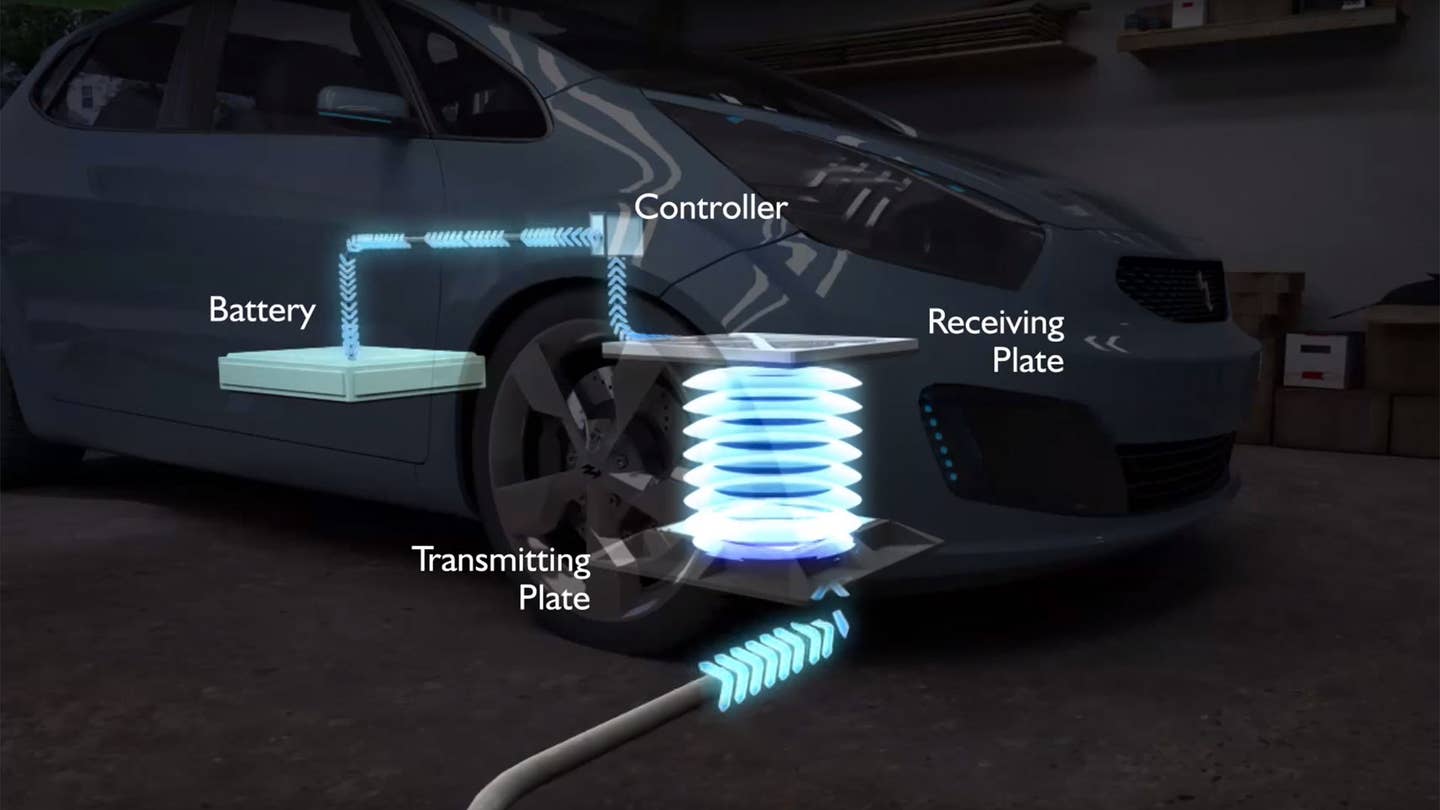This Wireless Charging System Could End Electric Car Range Anxiety
Tests of wireless charging and electrified highways are successfully under way.

Somehow, despite the fact that wireless charging for our phones still isn't quite a thing, researchers at the Oak Ridge National Laboratory (ORNL) are currently testing a 20-kilowatt wireless charging system for EVs that operates at 90% efficiency. So, once again, we ask the question concerning every Tesla, Nissan Leaf, and BMW i8/i3 owner: will this be the technology that finally ends range anxiety, that invisible tether that keeps electric car drivers from motoring with the same abandon as their ICE-driving counterparts?
Right now, the gold standard of corded fast charging is a system like Tesla's Supercharger, which charges at up to 120 kW (a standard Level 2 charger makes do with around 7 kW). As such, the system that ORNL is testing triples the capacity of a normal charger, though still falls well short of the best DC chargers. That means a user could gain close to 30 miles of charge during a typical 45-minute errand. To those worried about the danger of the high-intensity magnetic field required for wireless charging, an ORNL engineer states that "the high-frequency magnetic fields employed in power transfer across a large air gap are focused and shielded." In other words, there will be little to no "splash over" of magnetic current, decreasing ambient charge to "well below limits set by international standards." Put yet another way: your Corgie will not get fried.
While the act of plugging in a cord isn't exactly onerous, even small amounts of additional work can hinder the adoption of a new technology—see, for example, the frustration many now have with the chips and PIN requirements of new credit cards. The convenience and simplicity of passive, wireless charging around town might be the lynchpin in a more widespread adoption of e-vehicles. More excitingly, ORNL also hints at a successful test of "dynamic charging capabilities"—otherwise known as charging while driving.
No production plans are outlined yet, but the caliber of the companies (Toyota, Cisco Systems) involved with this project, not to mention the federal government's desire to encourage the purchase and use of low-to-no-emissions vehicles, means that wireless charging and even electrified highways are well inside the realm of the possible. That's excellent for drivers because no one, Corgie or otherwise, likes a leash.
